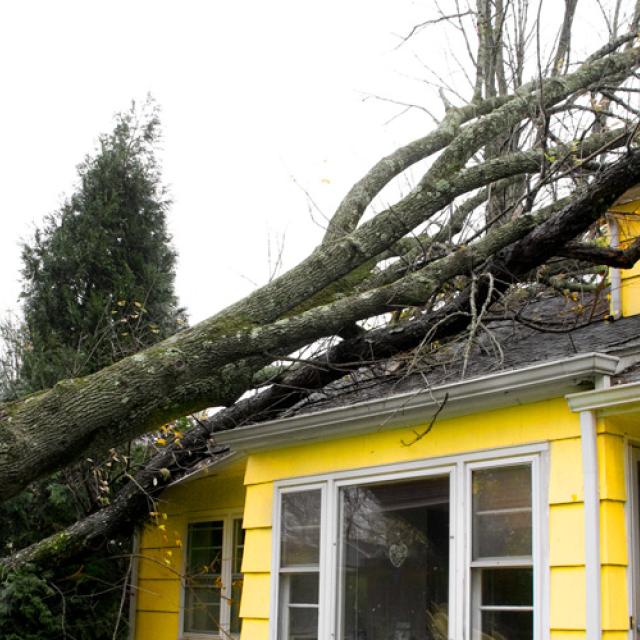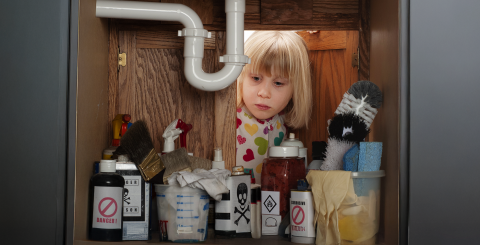If a tree falls on your house, is it covered?

What happens if you make a false move and your home gets damaged? Are you covered or not? Take for example Matthew who wanted to try out his lumberjack skills—and did some damage in the process!
Accidents you’d never expect
Matthew decided to chop down a tree on his property. The tree was pretty close to his house and—you can guess the rest. Despite his calculations and the precautions he took, the trunk and branches fell on his house in a split second and damaged the structure as well as his patio furniture, which wasn’t protected by a garden shed.
This was an unintentional accident, similar to damage caused by a chimney fire. Matthew is really upset because he thinks he’s responsible and will have to pay for the damage. But will he really? The answer to that question depends on the coverage he chose.
Types of coverage
Scenario 1: Matthew has comprehensive insurance, the most extensive type of insurance policy on the market. It covers most accidental occurrences that may damage property, except those that are specifically excluded. That means Matthew’s in luck—his insurance covers all damage to both the house and the furniture.
Scenario 2: Matthew has named risk insurance, also known as basic coverage. The good news is Matthew’s covered for “falling objects.” The bad news is he’s only covered for damage to his home. His patio furniture isn’t covered by named risk insurance. This type of policy only covers certain types of damage.
Comprehensive vs. named risk insurance: which costs more and how to choose what’s right for you
Since comprehensive insurance has greater coverage, the premium is generally higher. So which should you choose? To figure out which is right for you, contact one of our insurance representatives. They’ll help you decide which coverage suits your needs, no matter what your budget is. Request a home insurance quote from Promutuel Insurance today and tackle your yard work worry-free!




